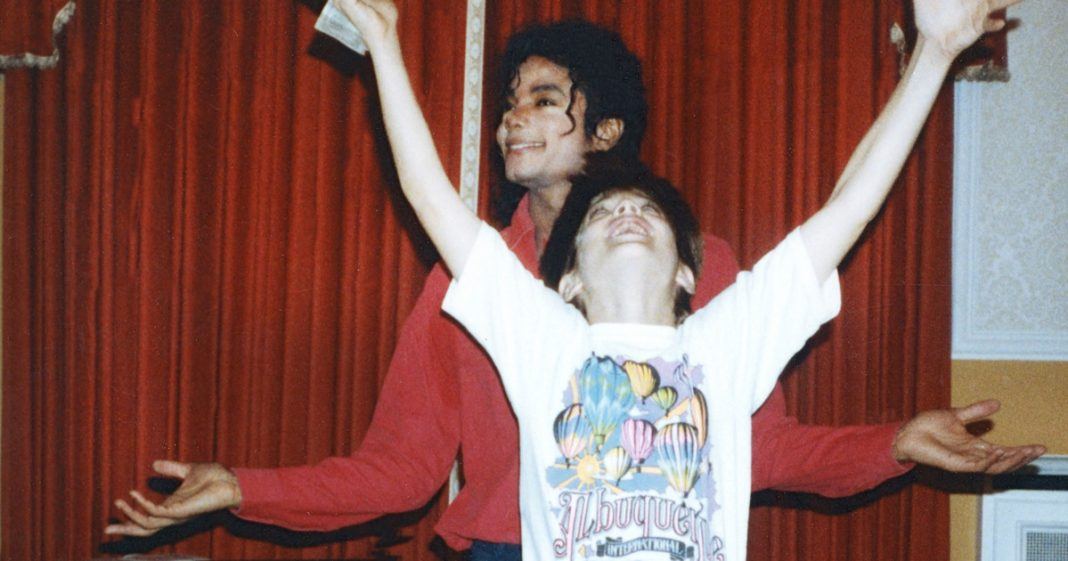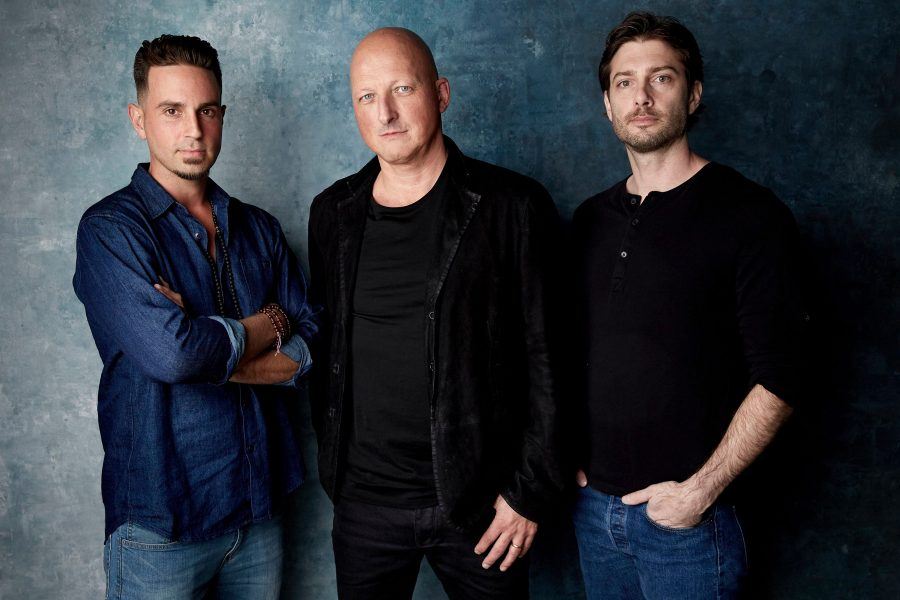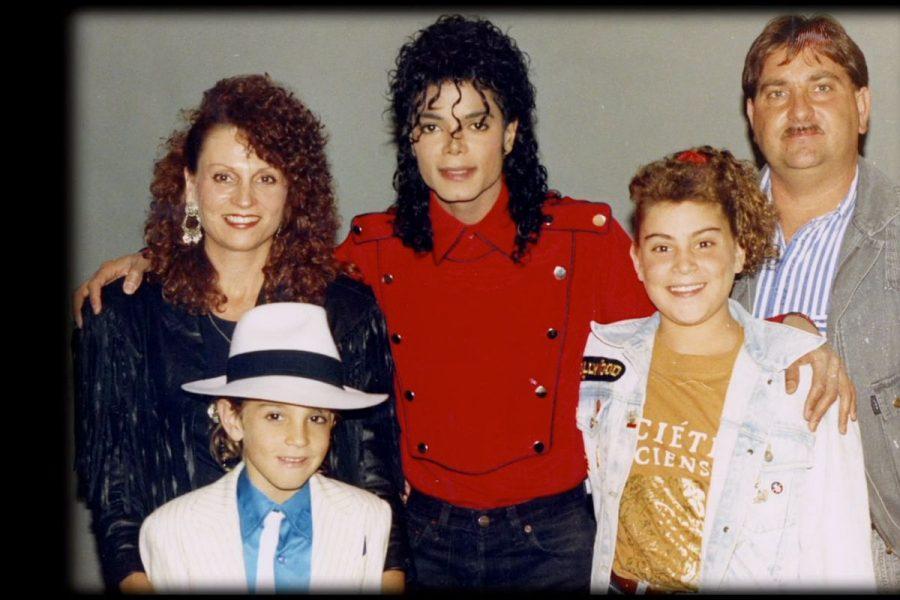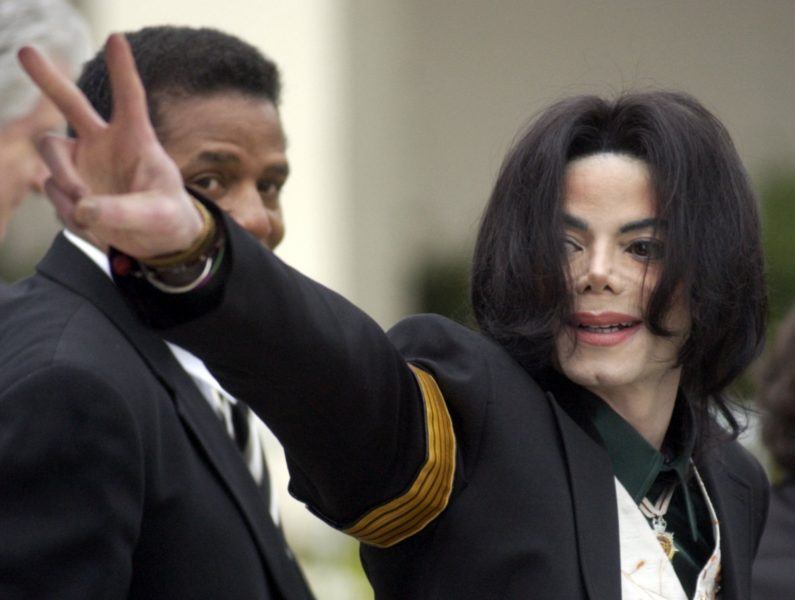
Pop icon Michael Jackson survived many allegations while he was alive, but will the King of Pop’s legacy be able to survive the disturbingly powerful documentary “Leaving Neverland?”
After all, it has bounced back before. The superstar’s image was tarnished by allegations of sexual abuse that shadowed him throughout much of his adult life and even stood trial on child molestation charges in 2005, for which he was acquitted. His untimely death in 2009 seemed to wash that stain away in an outpouring of public love and a resurgence of sales of his always popular music.
Now, 10 years later, the HBO documentary “Leaving Neverland” has aired detailed and disturbing stories from two men who say Jackson groomed them for sex and molested them when they were just little boys.
It has cast a spotlight on Jackson’s unsavory history at a #MeToo moment when old allegations against stars have been taking hold, and taking them down.
So far, there has been no evidence of major damage to Jackson’s music or his estate, which has made an estimated $2 billion since his death. His music has been featured in commercials and is the subject of a Cirque Du Soleil show in Las Vegas. A play about his life by Pulitzer Prize-winner Lynn Nottage is due out on Broadway next year.
And it may not. After all, Jackson is dead now, which means he can’t be charged or put on trial, keeping the story in the headlines for months or years to come.
And there is Jackson’s nearly unparalleled star status — starting out as a cherub-faced 11-year-old sensation with the Jackson 5, then catapulting into a global phenomenon with the world’s best-selling album of all time, “Thriller,” to his credit and hits adored by multiple generations.
“It’s hard to compare someone of Michael Jackson’s caliber to anyone else,” said Danny Deraney, a publicist who often handles crisis management. “I don’t think we’ve seen anything like it.”
Still, Oprah Winfrey, with her vast influence, may have heralded a shift in public attitudes just by hosting the special “After Neverland,” in which she interviewed the documentary’s subjects, James Safechuck and Wade Robson.
“For me, this moment transcends Michael Jackson. It is much bigger than any one person,” Winfrey said during an hourlong special that aired after the conclusion of “Neverland” on Monday night. “This is a moment in time that allows us to see this societal corruption.”
Winfrey, who revealed on her talk show more than 30 years ago that she was sexually abused as a child, was joined by Wade Robson and James Safechuck, the two accusers at the center of “Neverland,” and Dan Reed, the film’s director. She praised Reed for his approach to the project.
“I taped 217 episodes [of “Oprah”] on sexual abuse. I tried and tried and tried to get the message across to people that sexual abuse was not just abuse. It was also sexual seduction,” Winfrey said, adding that Reed was “able to illustrate in these four hours what I tried to explain in 217.”
“I hope we can get beyond Michael Jackson the icon, stop staring into the sun, and do what is necessary to help our children and ourselves,” Winfrey said in front of an audience of sexual abuse survivors and their supporters.
She did not directly condemn Jackson. But she praised the film, treated its assertions as truth, and said that she was expecting an earful from Jackson’s defenders.
“I’m gonna get it,” Winfrey, who interviewed Jackson before the allegations emerged in 1993 and his family after his death, said at the end of the show that aired Sunday and Monday on HBO and OWN just after the documentary.
And she did. Even before the special taped, she was subject to fierce criticism by some who left disparaging comments on her social media account.
It could be that Jackson’s fandom is so pervasive, especially in countries that don’t follow his personal news closely, that the documentary and renewed allegations will just make a small dent.
“For Michael Jackson’s fans, more so probably outside of America, I don’t think it will have an effect, because they’ll ride or die with Michael,” Deraney said.
“Neverland” is largely made up of unflinching testimony from Robson, 36, and Safechuck, 40, who both claim they were befriended by Jackson and then sexually abused by him when they were children.
The 236-minute film also explores the trauma they say they experienced as adults and features interviews with some of their family members, including both of their mothers.
Robson, who claims the abuse started when he was 7, and Safechuck, who claims it started when he was 10, had previously told authorities there had been no sexual misconduct. Robson testified in Jackson’s defense at the 2005 molestation trial. But they have since filed lawsuits against the Jackson estate. They are appealing after their suits were dismissed due to the statute of limitations.
Robson and Safechuck’s allegations didn’t emerge until 2013, when they filed lawsuits seeking money from Jackson’s estate that have since been thrown out and are under appeal. Both men had previously denied Jackson sexually abused them and had been among his fiercest defenders when Jackson was alive, but say having their own children and Jackson’s death led them to confront their truth.
Because of the men’s past denials, some Jackson fans have dismissed their testimonies as lies, motivated by money. Some even refused to watch the documentary. Still, after the film began airing, there were casual fans who felt gutted by the revelations, with some saying they could not listen to his music the same way — if at all.
“People have already made the decision one way or the other,” Deraney said. “I think when a lot of people think of Michael Jackson they already think ‘pedophile,’ whether or not there is any proof.”
“I think what it comes down to,” Deraney added, “is future generations.”

From left: Wade Robson, director Dan Reed, James Safechuck. Leaving Neverland.
Many millennials have only vague knowledge of the Jackson accusations, and are shocked even by facts that are acknowledged by both sides.
“I’m young enough to have not been aware of the allegations about Michael Jackson as they were happening,” 31-year-old New York Times columnist Jamelle Bouie tweeted while watching the documentary. “It is WILD TO ME that anyone thought his behavior around and constant contact with young boys was remotely okay.”
Some of Jackson’s fellow artists have indicated they will not give him and his influence up easily, and say they can separate the performer from the person.
Jason Derulo recently released the first music and videos from a planned boxed set of EPs that the singer and dancer made in tribute to Jackson. It’s set to be released in its entirety on June 25, the 10th anniversary of Jackson’s death.
“Michael was the sole reason I started singing and dancing, so this was a way for me to give back,” Derulo, who has not seen “Leaving Neverland,” told media outlets. “I started this project because of my love of the performer that Michael Jackson is and the influence that he had on my life as the best performer that ever lived. This has nothing to do with anyone’s personal life.”
India.Arie says it was right to speak out against R. Kelly, who faces new sexual abuse charges after the Lifetime documentary “Surviving R. Kelly” aired more than a decade after he was cleared of child pornography charges. But Jackson’s situation is different, the singer said.
“I think it’s too late for people to be saying ‘mute Michael Jackson,’” Arie told media outlets.
“With R. Kelly there’s video,” she said, referencing a sex tape that allegedly shows the singer’s abuse. “With Michael Jackson, there’s a lot of speculation. I don’t know if it’s going to go as far. … Not because we love him more, I just think it’s a different situation.”
“I hope everyone watches this,” Ellen DeGeneres tweeted during Winfrey’s interview with Robson and Safechuck, which aired on HBO and Winfrey’s cable network, OWN.
Rosie O’Donnell tweeted that the documentary, which premiered to a standing ovation at the Sundance Film Festival in late January, was a “haunting” viewing experience.
Rose McGowan, an actress and prominent voice in the #MeToo movement, said Robson, Safechuck, Reed and Winfrey were all “brave” for taking part in the film.
Jackson’s defenders, including what the New York Times described as the singer’s “tenacious” legion of online fans, assailed the documentary, deluging Twitter with disparaging comments. They say the documentary repeats discredited allegations from admitted liars.

Jackson’s brothers said they were already in a rough period of managing his memory and legacy with their father Joseph Jackson’s death last year, when they heard that “Leaving Neverland” was coming.
“This time is difficult for us because you know Michael, coming up on the 10th anniversary of his passing and my father passed away six months ago,” Marlon Jackson told media outlets last week. “So those things are still there, and you never get rid of them. You learn to live with them. And now we’re dealing with something that’s totally different but has no truth to it. There’s no facts at all.”
Corey Feldman, the former child star who was close friends with Jackson as a child and said in 2011 that pedophilia was “the No. 1 problem in Hollywood,” appeared to suggest in a tweet that the allegations against the King of Pop were false.
At least one prominent and formerly devoted fan says he’s been forced to reconsider.
“I’ve spent a lifetime loving MJ,” Los Angeles Times music writer Gerrick D. Kennedy wrote after seeing the documentary’s premiere at the Sundance Film Festival.
“Roughly an hour into ‘Leaving Neverland,’ it felt like my chest had caved in …. It wasn’t long before I accepted that ‘Leaving Neverland’ would force me — and likely many others who also feel a deep connection to Jackson’s work — to see that none of us really knew him. And that maybe we’d been avoiding the truth.”
The subjects of the documentary themselves don’t have strong feelings about whether people should give up Jackson’s music.
“It’s a chance to reevaluate who you want to be your idols,” Safechuck told media outlets at Sundance. “Because you can write a song, does that mean you should be people’s moral compass? … It’s less about tearing down somebody and more about an opportunity of who do we want to look up to.”
“There’s plenty of other amazing people to fill that role.”

The Robson family, as seen in HBO’s Leaving Neverland, with Michael Jackson.
Most Disturbing Aspects of “Leaving Neverland”
Jackson groomed families as well as his alleged victims.
Both Joy Robson, Wade’s mother, and Stephanie Safechuck, James’ mom, say Jackson for a time felt like another son to them. (Jackson met James when they starred in a Pepsi commercial and Wade when the boy’s Jackson impersonation led to an onstage appearance in Wade’s native Australia during the Bad tour.) He visited both families’ homes and hosted them at homes he owned, including Neverland Ranch. His childlike persona and, the documentary implies, the overwhelming nature of his fame helped convince the families that Wade and James would be safe in his company.
Neverland had multiple places for Jackson to take his victims.
As Safechuck tells it, Jackson’s Santa Barbara County property had several spaces where he took the boy for sexual encounters, from a room adjacent to the main house’s home theater to a bedroom above the theme park’s train stations. The hallway leading to the singer’s bedroom had a series of bells that sounded if someone was approaching.
Jackson sowed an us-against-them mentality in the boys.
Robson and Safechuck discuss at length how Jackson told them not trust other people — women in particular — and that no one would understand their “love.” He allegedly told the boys that they would go to jail along with Jackson if anyone found out what they were doing. Safechuck also says he and Jackson would practice “drills” about what to do if someone were to walk in on them.
Jackson’s favored sexual tactics.
Both men describe a gradual escalation from touching to more involved acts. They allege that Jackson preferred to have them kneel on hands and knees at one corner of his bed while he masturbated from the opposite corner while looking at them. Robson describes one such encounter where he would either have to look back at Jackson or in front of him at a cutout of Peter Pan. Both allege he had them perform oral sex on him and did the same to them; as they got older, he showed them graphic pornography.
Jackson and Safechuck got “married.”
One of Leaving Neverland‘s most powerful moments comes about 90 minutes into part one, when Safechuck recounts how Jackson used the boy’s love of jewelry against him, including buying him a wedding ring to cement their commitment to one another. A visibly upset Safechuck shows the camera the ring and other pieces he says Jackson gave him as rewards for sex. They would go to jewelry stores on the pretense of buying something for a woman, Safechuck alleges, using his smaller hand as a guide for size.
Jackson counted on both for support in court cases.
Part two of Leaving Neverland spends a good amount of time on two court cases against Jackson. As boys and, in Robson’s case, as an adult, both said in legal proceedings that Jackson had never violated them. When Jackson was accused of abusing boys in 1993 and 2003, he repeatedly called both and pressed them to testify on his behalf. His lawyers subpoenaed Robson in the 2004-05 trial, where Robson again said Jackson had never acted inappropriately with him. He tells director Dan Reed he wasn’t ready, emotionally or psychologically, to speak the truth at that time.
It took years for Robson and Safechuck to understand they were abused.
As Robson put it, for years he believed that “I loved him and he loved me, and [sex] was something that happened between us.” Safechuck told his mother of the abuse in the days following the 2003 accusations against Jackson, when the singer was pressuring the family to speak on his behalf. Robson took longer to face up to the truth. Robson sued Jackson’s estate in 2013, but the case was dismissed after a judge found he hadn’t filed it within the statute of limitations.


